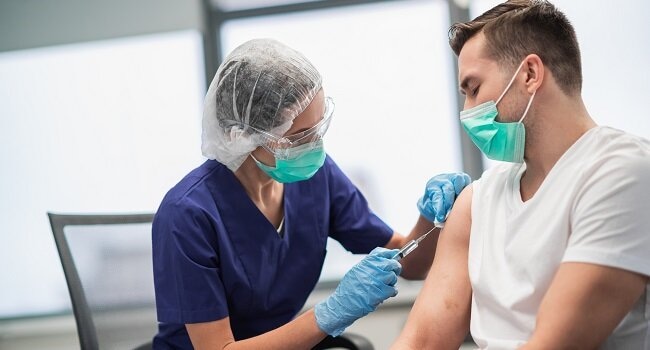Although vaccinations have been around for decades, questions about their safety and effectiveness persist. You, like most people, probably got vaccinated because you believe it to be the safest and most effective way to stay healthy. However, if you’re considering getting vaccinated for the first time, it’s essential to be informed about all the possible benefits and risks involved. While vaccines are probably one of the safest ways to keep yourself healthy, there are also some risks that you should know. Continue reading to learn more.
Benefits
-
Less Risk Of Secondary Illness
While some people may get tingling fingers after a flu vaccine, or a sore arm from a tetanus booster, these are relatively minor side effects compared to the severe diseases these vaccinations can prevent. If you get vaccinated, you’ll be injected with a ‘dead’ or ‘modified’ form of the virus. As that person’s immune system fights off the ‘invader,’ the individual will also develop immunity to the disease without getting sick.
Vaccines have been so successful in controlling diseases that many people have established trust and confidence regarding their efficacy. One perfect example is the vaccination efforts that led to the elimination of smallpox, which once claimed the lives of hundreds of millions of people annually around the world. Similarly, measles used to infect millions of children; but in recent years, there have been only sporadic outbreaks thanks to vaccines.
-
Prevents Long-Term Complications
Depending on the vaccine and the illness it’s designed to prevent, you might not only be protected for months or years after vaccination; some vaccines can protect you for life. When diseases like polio were eradicated from a country, a person who has been vaccinated is unlikely to experience severe long-term complications if the disease were to recur. Typically, most people who get ill from a disease like the flu will experience long-lasting health problems which could’ve been prevented if vaccinated in advance.
-
You’ll Be Protecting Your Family And The Community At Large
By vaccinating, you’re not just protecting yourself – you’re protecting your loved ones and your community. Vaccines work by preparing your body to recognize and fight off diseases. If you come in contact with a disease, your immune system is already primed to take action, and you’re much less likely to get sick. And because vaccines help keep diseases from spreading, even people who can’t be vaccinated (such as young babies or cancer patients) are less likely to get sick when more people around them are vaccinated.
For instance, when enough people get the Covid-19 vaccine, it’s called ‘herd immunity,’ – and it’s one of the best ways to protect vulnerable populations. So, by getting vaccinated yourself, you’re not only protecting your health, but you’re also doing your part to keep your community healthy.

Potential Risk Of Side Effects
While vaccines are generally safe, there are some side effects to consider when getting vaccinated for the first time. Some of these side effects include:
-
Fever
When you get a vaccination, your body is essentially exposed to a small amount of the virus or bacteria that the vaccine was designed to protect from. In response, your immune system kicks into gear and starts working to build up immunity. This process can sometimes lead to a mild fever. The good news is that managing a fever from a vaccine is straightforward. You can take over-the-counter medications like acetaminophen or ibuprofen to help reduce your temperature and drink lots of fluids. Remember that you don’t have to stress yourself and worry. A slight fever after a vaccine is a good sign that your immune system is doing its job.
-
Allergies To Certain Vaccines
Depending on your medical history, you may have specific allergies, which implies that you shouldn’t get certain vaccines. Before receiving a vaccine, you and your doctor should consider whether or not you have any of these conditions. If you’re allergic to a particular vaccine, don’t worry – plenty of other practical options are available. Determining whether you have an allergy to specific vaccines is necessary for being an informed patient.
-
Fatigue And Muscle Aches
A vaccine can cause mild side effects, like feeling tired or having sore muscles. Your body’s immune system also works to protect you from disease. To combat these symptoms, it’s essential to stay well hydrated with fluids like water and juice, take frequent breaks during activities that require physical exertion, and allow yourself time to rest and recover.
Conclusion
Getting vaccinated for the first time can be a little nerve-wracking, but it’s one of the best ways to protect your health and well-being. By weighing the benefits and risks beforehand, you’ll know exactly what to expect should you decide to get vaccinated. Whether you’re protecting yourself from specific illnesses or helping prevent outbreaks in your community, getting vaccinated for the first time is a smart choice. So don’t hesitate to talk to your doctor today about getting vaccinated!

















